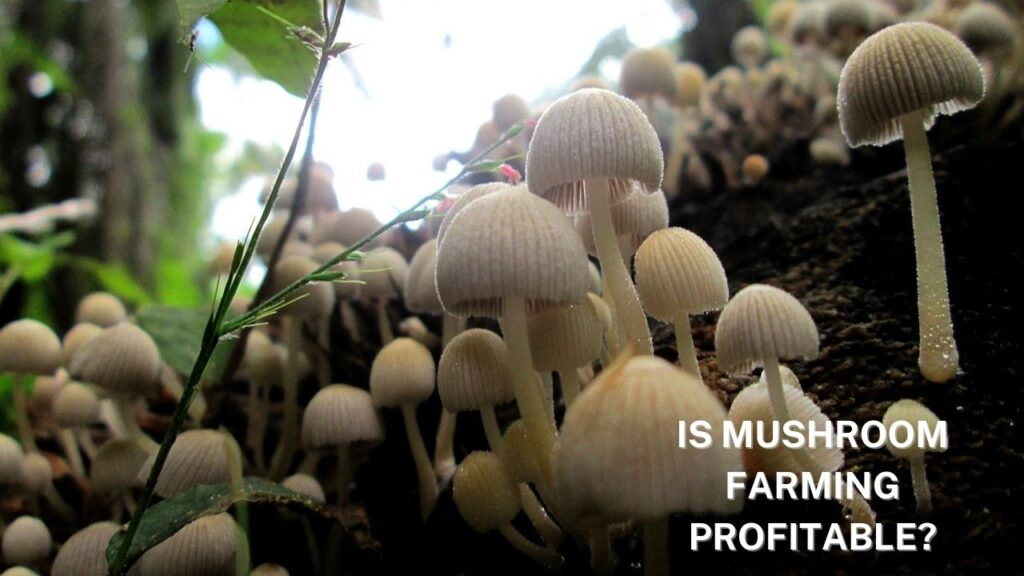Is Mushroom Farming Profitable? Mushroom farming has gained significant attention in recent years, and for good reason. It’s not just a hobby for fungi enthusiasts; it can also be a lucrative business venture. In this article, we will delve into the world of mushroom farming to determine whether it is a profitable endeavor.

Table of Contents
The Rising Popularity of Mushrooms
Mushrooms have become a staple in many cuisines around the world. Their unique flavors and textures make them a sought-after ingredient for chefs and home cooks alike. Beyond their culinary appeal, mushrooms are gaining recognition for their health benefits. They are rich in essential nutrients, low in calories, and are known for their potential medicinal properties.
Diverse Mushroom Varieties
One of the factors that make mushroom farming attractive is the vast diversity of mushroom species available. From the familiar white button mushroom to exotic varieties like shiitake, oyster, and maitake, there is a mushroom to suit every taste and culinary application. This diversity allows mushroom farmers to cater to a wide range of markets and consumer preferences.
Low Initial Investment
Compared to many other types of farming, mushroom cultivation requires a relatively low initial investment. You don’t need vast acres of land or expensive machinery. In fact, mushrooms can be grown in a controlled indoor environment, making it accessible to individuals with limited resources.
Quick Growth Cycle
Another advantage of mushroom farming is the rapid growth cycle. Unlike traditional crops that may take months to yield results, mushrooms can be ready for harvest in a matter of weeks. This quick turnaround time means you can start generating revenue relatively soon after starting your mushroom farm.
High Market Demand
The demand for fresh, locally grown produce is on the rise, and mushrooms are no exception. Consumers are becoming more health-conscious and are willing to pay a premium for high-quality, organic mushrooms. This presents a lucrative opportunity for mushroom farmers to tap into a growing market.
Potential for Year-Round Harvest
Mushrooms can be cultivated year-round, providing a steady source of income. With the right setup, you can stagger your production to ensure a continuous harvest, further enhancing the profitability of your mushroom farm.
Sustainability and Environmental Benefits
Mushroom farming is environmentally friendly. Mushrooms can be grown on various substrates, including agricultural waste products like straw and sawdust. This not only reduces waste but also provides an eco-friendly alternative to traditional farming practices.
Challenges in Mushroom Farming
While mushroom farming offers numerous advantages, it’s essential to acknowledge the challenges involved. Controlling the growing environment, preventing contamination, and managing pests and diseases can be demanding tasks. Additionally, marketing and distribution can be competitive, requiring effective strategies to stand out in the market.
Additional Considerations
Before you dive into mushroom farming, there are a few additional considerations to keep in mind:
Market Research
Conduct thorough market research to understand the demand for specific mushroom varieties in your area. Identify potential customers and competitors to develop a clear marketing strategy.
Proper Training
Invest in training and education related to mushroom cultivation. Understanding the intricacies of mushroom growth, disease prevention, and harvesting techniques is crucial for success.
Quality Control
Maintain strict quality control measures to ensure the consistency and quality of your mushrooms. Consistency in size, texture, and flavor will help you build a loyal customer base.
Business Plan
Create a detailed business plan outlining your goals, budget, and expected returns. A well-thought-out plan will serve as a roadmap for your mushroom farming venture.
Marketing and Distribution
Explore various marketing channels, including local farmers’ markets, restaurants, and online sales platforms. Effective distribution and branding are key to reaching a wider audience.
In conclusion, while mushroom farming offers great potential for profitability, it also requires dedication, knowledge, and careful planning. By considering these additional factors and staying committed to your venture, you can increase your chances of success in the exciting world of mushroom farming.
Conclusion
In conclusion, mushroom farming has the potential to be a profitable venture. The rising popularity of mushrooms, diverse varieties, low initial investment, quick growth cycle, high market demand, year-round harvest potential, and environmental benefits all contribute to its appeal. However, it’s crucial to approach mushroom farming with dedication, knowledge, and a willingness to overcome challenges. Success in mushroom farming is not guaranteed, but for those who are committed and well-prepared, it can be a rewarding and profitable endeavor. So, if you’re considering mushroom farming, do your research, develop a solid business plan, and embark on this exciting agricultural journey with enthusiasm and determination.
